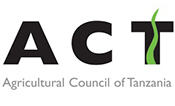Policy and Advocacy
ACT influenced the Government to put agriculture on top of the political agenda through the Kilimo Kwanza (Agriculture First) Resolution since 2009, under which the Southern Agricultural Growth Corridor of Tanzania (SAGOT) was developed as the tool for the implementation of the resolution.
Lobbied the government to increase public expenditure in the agricultural sector from 2.1% min 2000/2001 to 7.7 percent in the year 2010/2011.
Influence the Government on the establishment of the Tanzania Agricultural Development Bank (TADB) and the Agricultural window at Tanzania Investment Bank in 2015.
In the financial year 2017/18, I convinced the Government to reduce/waive some duties, taxes, levies, fees, and charges in the agricultural sector
National Task Force for Tax Reform; Due to its advocacy role in Agriculture, ACT is representing the sector in the National Task Force for Tax Reform in the Ministry of Finance and also a member of the National Think Tank under the coordination of the Ministry of Finance.
Together with other stakeholders, ACT convinced the Government to review and harmonize different policy and legal frameworks for improving the agribusiness environment in Tanzania. This is indicated in the Government Blue Print for regulatory reforms
ACT in collaboration with other private sector organizations is implementing the programme known as Tanzania Agriculture Partnership (TAP). Through the TAP programme, ACT has managed to technically support different farmers especially training them on Good Agricultural Practice (GAP), Conservation Agriculture (CA), and System of Rice Intensification (SRI). Either directly or through TAP Projects, ACT has supported different farmers and other actors in the value chain with regards to post-harvest management, processing, and market linkages. Through this arrangement, companies such as YARA, NMB, John Deere, Rapha Group, Mtenda Ltd, etc. are directly working with farmers and other rural entrepreneurs.
ACT has also instituted collaborative and innovative processes in the effective use of the Public-Private Dialogue (PPD) platforms at District Levels. These platforms provide avenues for public-private dialogues at the Local Government level, where policy issues and regulatory bottlenecks at LGAs have been addressed via these dialogues
